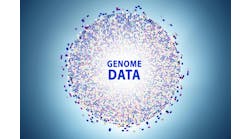The New York City-based Mount Sinai Health System has announced that it will be building a new supercomputer that will “mine deep databases of genomic and clinical information, with precision medicine in mind.”
Health system officials attested that its researchers will be able to explore more complex scientific questions more quickly once the organization builds its second “Big Omics Data Engine” (BODE 2) supercomputer, to be funded through a $2 million grant awarded by the U.S. Department of Health and Human Services (HHS).
Through BODE 2, Mount Sinai said, its researchers will be able to use machine learning approaches to mine deep databases of genomic and clinical information, with precision medicine as the ultimate goal. “With BODE 2, we are renewing our commitment to push the boundaries of scientific research, tackle questions that we did not previously have the computational power to take on, and achieve breakthroughs that transform clinical care worldwide,” said Dennis Charney, M.D., the Anne and Joel Ehrenkranz Dean of the Icahn School of Medicine at Mount Sinai and president of academic affairs for the Mount Sinai Health System.
Eimear Kenny, Ph.D., associate professor of medicine, general internal medicine, and genetics and genomic Sciences, at the Icahn School of Medicine at Mount Sinai and principal investigator of the TOPMed Program, added in a statement, “This new supercomputer will enable us to mine deep databases of genomic and clinical information using machine-learning approaches to propel the personalized medicine of today into better medicine tomorrow.”
And Patricia Kovatch, associate professor of genetics and genomic sciences, pharmacological sciences at the Icahn School of Medicine at Mount Sinai, noted, ““Computing capability of this size and speed is not available widely, and Mount Sinai’s investment in building this infrastructure will translate into more robust genetics and population analysis, gene expression, machine learning, and structural and chemical biology investigations, and result in new insights and advances in a wide range of diseases including Alzheimer’s, autism, influenza, prostate cancer, schizophrenia, and substance use disorders.”
According to an article in the publication Clinical OMICs, Mount Sinai disclosed two research projects to be facilitated through BODE 2:
- Understanding the Mechanism of SPl1-Dependent Alzheimer Disease Risk: BODE 2 will be designed to provide both the necessary storage for whole-genome-sequencing data sets from more than 10,000 study subjects and the processing power (approximately 12 million compute hours) to analyze the data using machine learning techniques. The analyses will be used to enhance current treatments or explore new therapies, Mount Sinai said.
- The Trans-Omics for Precision Medicine (TOPMed) Program: BODE 2 is intended to provide the 1.75 petabytes of storage necessary for the whole-genome-sequencing data, other omics, and molecular, behavioral, imaging, environmental, and clinical data for this unprecedented exploration of the biological causes underlying heart, blood, lung, and sleep disorders.
BODE 2 is set to launch at year’s end, and when it does, it will supersede BODE, an earlier-generation supercomputer that was built in 2015 using a $2 million NIH grant as a second expansion of Mount Sinai’s first supercomputer, named MINERVA and deployed in May 2012, according to the publication.

